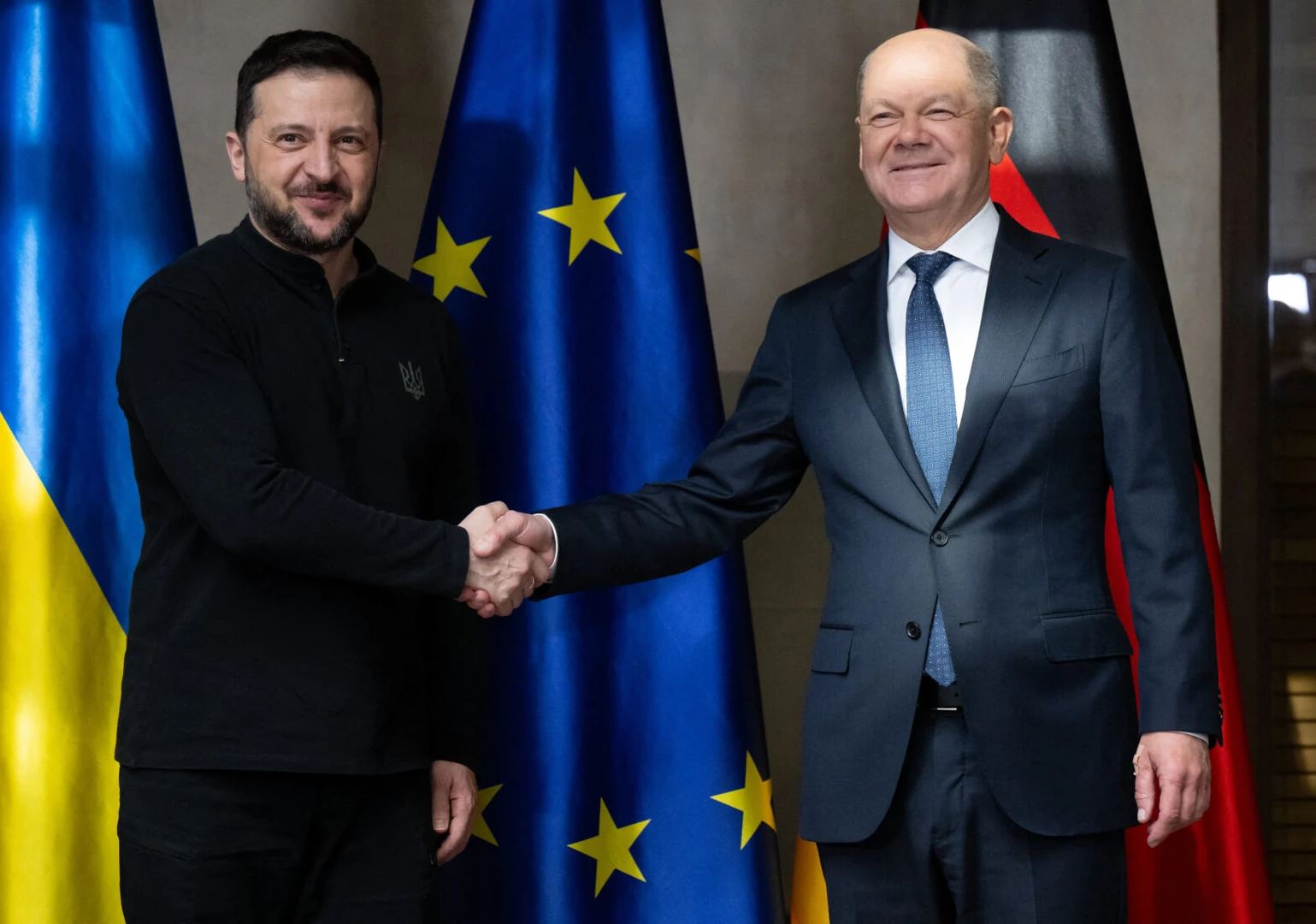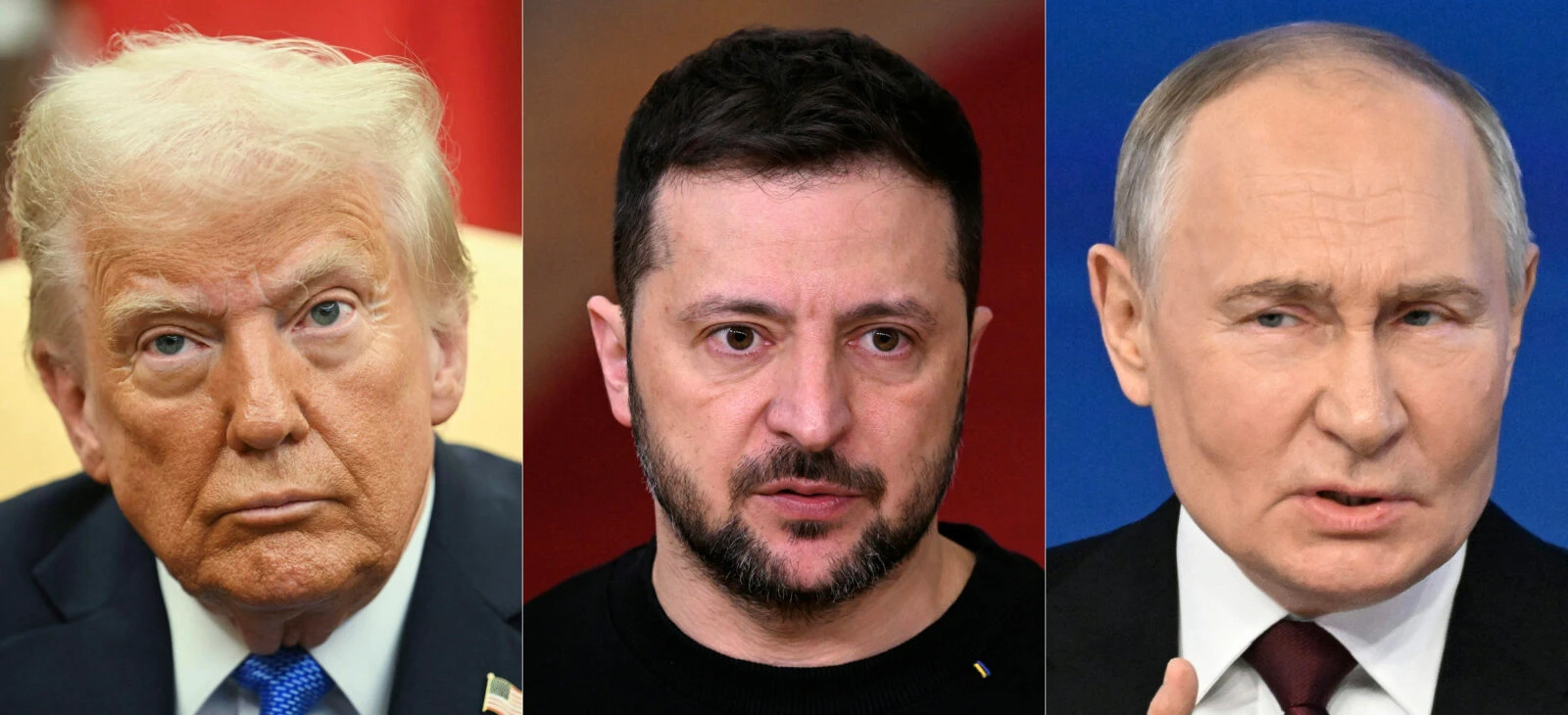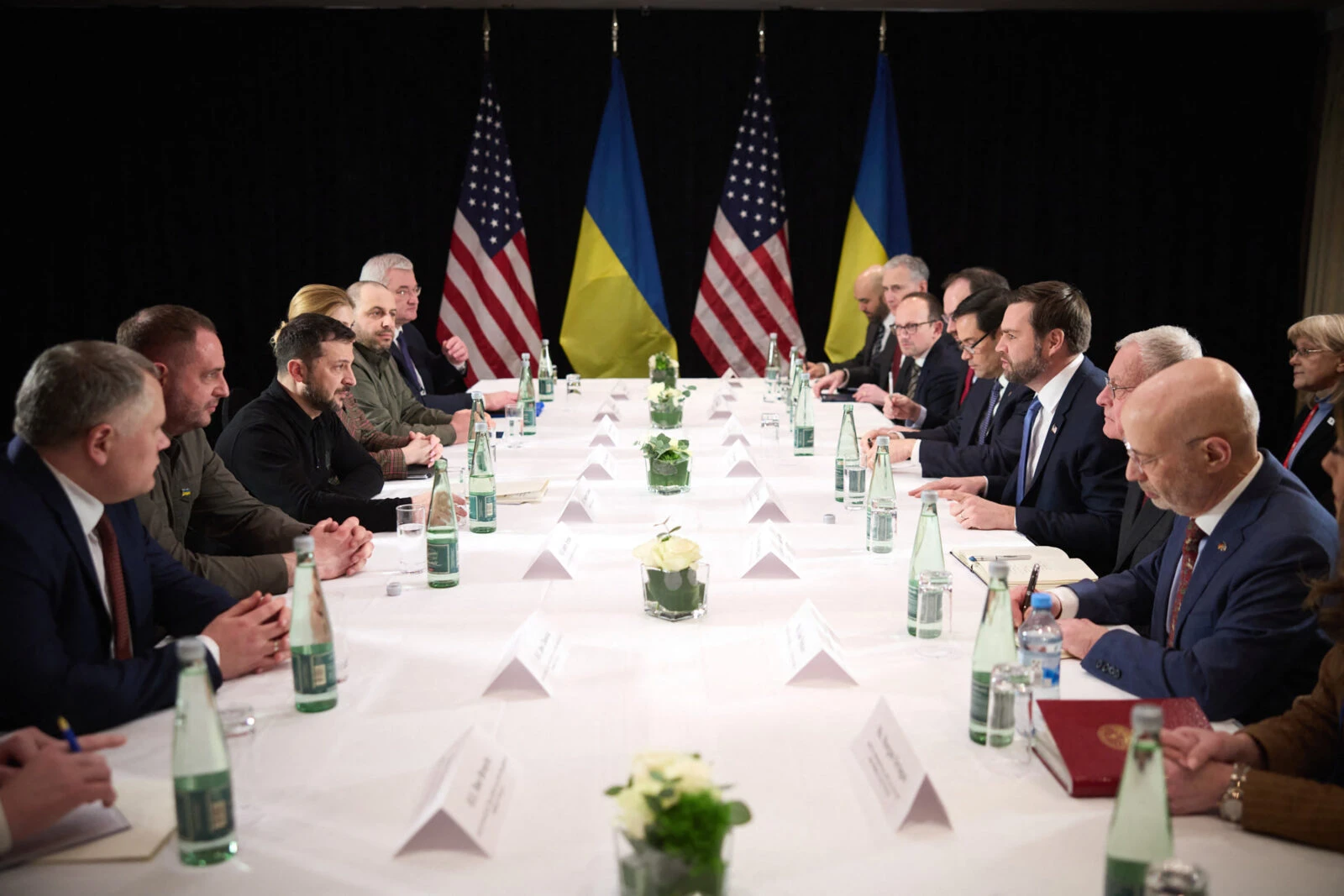France to host European Summit on Ukraine, security
 France's President Emmanuel Macron addresses the audience at the Elysee presidential Palace in Paris, on February 13, 2025. (AFP Photo)
France's President Emmanuel Macron addresses the audience at the Elysee presidential Palace in Paris, on February 13, 2025. (AFP Photo)
France will host a European summit on Feb. 17, Monday, to discuss the war in Ukraine and broader European security concerns, French Foreign Minister Jean-Noel Barrot said.
The meeting comes as European leaders seek to formulate a concrete response amid concerns about U.S. President Donald Trump’s unilateral approach to the conflict.
Key European leaders to attend
French President Emmanuel Macron will convene the summit, bringing together key European nations to discuss security matters, Barrot told France Inter radio on Sunday. He described the gathering as a working session rather than a dramatic event.
Diplomats confirmed that invitations have been sent out for the summit, set to take place Monday afternoon. Six European diplomats said invited nations include Britain, Germany, Poland, Italy, and Denmark, the latter representing the Baltic and Scandinavian countries.
The European Union leadership and NATO Secretary General Mark Rutte were also invited.
German Chancellor Olaf Scholz and Polish Prime Minister Donald Tusk will attend, sources from their respective governments confirmed.
The summit aims to evaluate immediate support for Ukraine, Europe’s role in security guarantees for Kyiv, and ways to strengthen the continent’s collective security.

European exclusion from US-led Ukraine talks
The summit follows remarks from Trump’s Ukraine envoy, Keith Kellogg, who stated on Saturday that Europe would not be included in peace talks for Ukraine. Washington recently sent a questionnaire to European capitals asking what contributions they could make to security guarantees for Kyiv.
We are intensifying discussions with Ukrainian leaders on efforts to forge an enduring peace. I had productive discussions with Andriy Yermak in Munich today, including on objectives that advance and national interests. I look forward to meeting Ukrainian President Volodymyr Zelenskyy in Kyiv soon
Special Presidential Envoy for Russia & Ukraine, Keith Kellogg
This exclusion has raised concerns among European leaders about their role in shaping Ukraine’s future security and their ability to coordinate a unified response to the ongoing conflict.
Three years into Russia’s invasion, European nations have struggled to present a cohesive strategy for Ukraine and relations with Moscow.

US and Russia to meet in Saudi Arabia for peace talks
As Europe faces exclusion from U.S.-led negotiations, U.S. and Russian officials will meet in Saudi Arabia in the coming days to discuss a possible resolution to the Ukraine conflict.
U.S. Secretary of State Marco Rubio, national security adviser Mike Waltz, and White House Middle East envoy Steve Witkoff will travel to Saudi Arabia for the discussions, according to U.S. Representative Michael McCaul.
It remains unclear which Russian officials will attend.
On the sidelines of the Munich Security Conference, McCaul stated that the ultimate goal is to arrange a meeting between Trump, Russian President Vladimir Putin, and Ukrainian President Volodymyr Zelenskyy to negotiate an end to the war.
Zelenskyy, who met U.S. Vice President JD Vance in Germany on Friday, said Ukraine was not invited to the Saudi Arabia talks and would not engage with Russia before consulting with strategic partners.
The U.S. State Department has not yet commented on the discussions.

Economic, security negotiations over Ukraine’s resources
The United States and Ukraine are currently negotiating a deal that could open up Ukraine’s vast natural wealth to U.S. investment.
Three sources speaking to Reuters indicated that the U.S. has proposed acquiring 50% ownership of Ukraine’s critical minerals. However, Zelenskyy said on Saturday that the draft deal did not contain the security provisions Kyiv needed to protect itself from future aggression.
Moscow, which currently controls one-fifth of Ukraine’s territory, has demanded that Kyiv cede territory and adopt permanent neutrality as part of any peace deal.
Ukraine, on the other hand, insists that Russia withdraw from captured land and has continued to seek NATO membership or equivalent security guarantees to ensure protection against future aggression.



